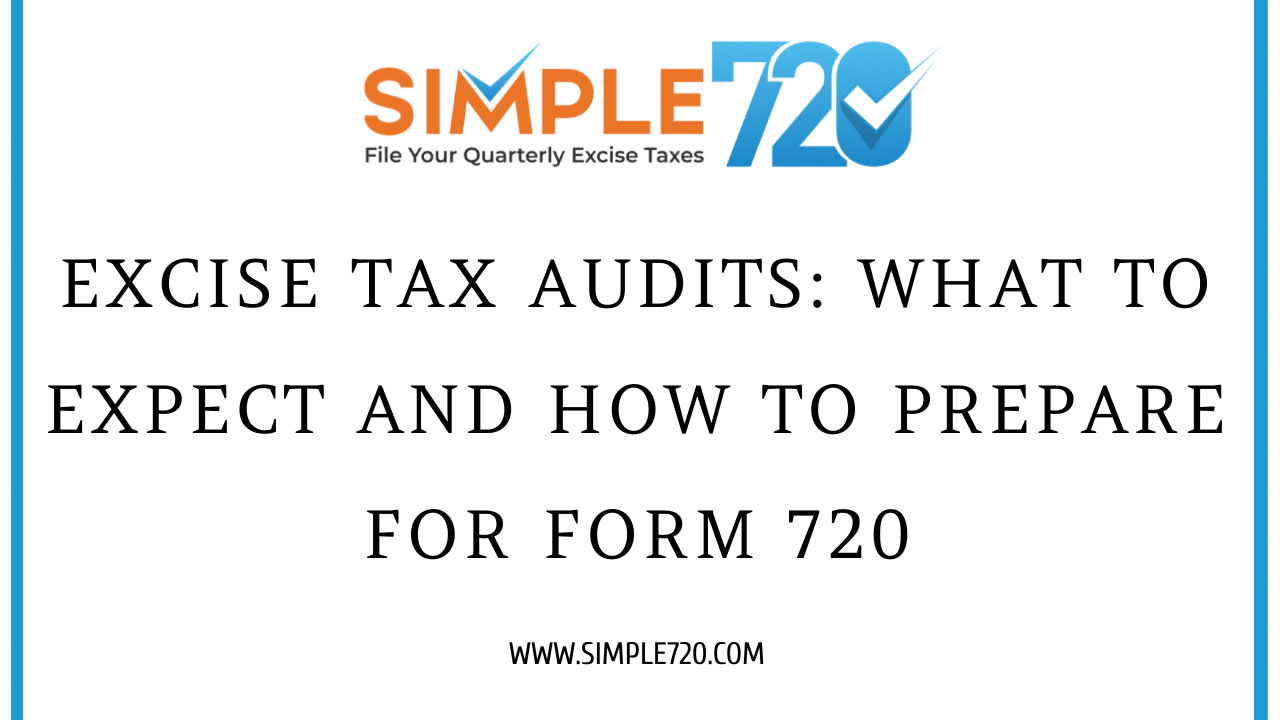
Excise Tax Audits: What to Expect and How to Prepare for Form 720
As a business owner, it is essential to be aware of excise taxes and the regulations that surround them. There are specific taxes that apply to goods and services, and failure to report and pay your excise taxes can result in hefty penalties from the Internal Revenue Service (IRS).
One way the IRS ensures businesses are compliant with excise tax regulations is through audits. Excise tax audits are a way for the IRS to verify that a business has reported and paid the correct amount of taxes. These audits can be stressful and time-consuming, but with preparation, you can minimize any potential issues.
Here are some things to expect during an excise tax audit and how you can prepare for Form 720:
What is Form 720?
Form 720 is the Quarterly Federal Excise Tax Return. This form is used to report excise taxes, such as those on fuel, tobacco, alcohol, firearms, and air transportation. It is essential to file Form 720 every quarter, even if you have no excise tax liability.
What Happens During an Excise Tax Audit?
The auditor will start by reviewing your Form 720 returns for the last three years. The auditor will likely want to see documentation that supports the numbers reported on the returns.
Prepare for the Audit
Here are some steps you can take to prepare for an excise tax audit:
- Review your excise tax reporting and payment procedures. Ensure that you have complied with all regulations and are maintaining accurate records.
- Gather all documentation related to excise taxes. You will need documents, such as sales receipts, invoices, and bills of lading, to support your tax filings.
- Be prepared to answer any questions related to your excise tax returns. The IRS auditor will likely ask questions about the numbers reported, the methods used to calculate the taxes owed, and the sources of revenue.
- Consider hiring a tax professional. If you are unfamiliar with the excise tax regulations or need assistance in preparing for an audit, a tax professional can help you navigate the process.
- Be transparent and honest. If you are not sure about a question or data point, it is better to admit that you don't know than to try to fabricate an answer.
Excise tax audits can be intimidating; however, by taking the time to prepare and ensuring compliance with regulations, you can minimize the risk of problems arising. Remember to keep accurate records, file Form 720 every quarter, and be transparent during the audit process. With these precautions, you can keep your business in good standing with the IRS.
